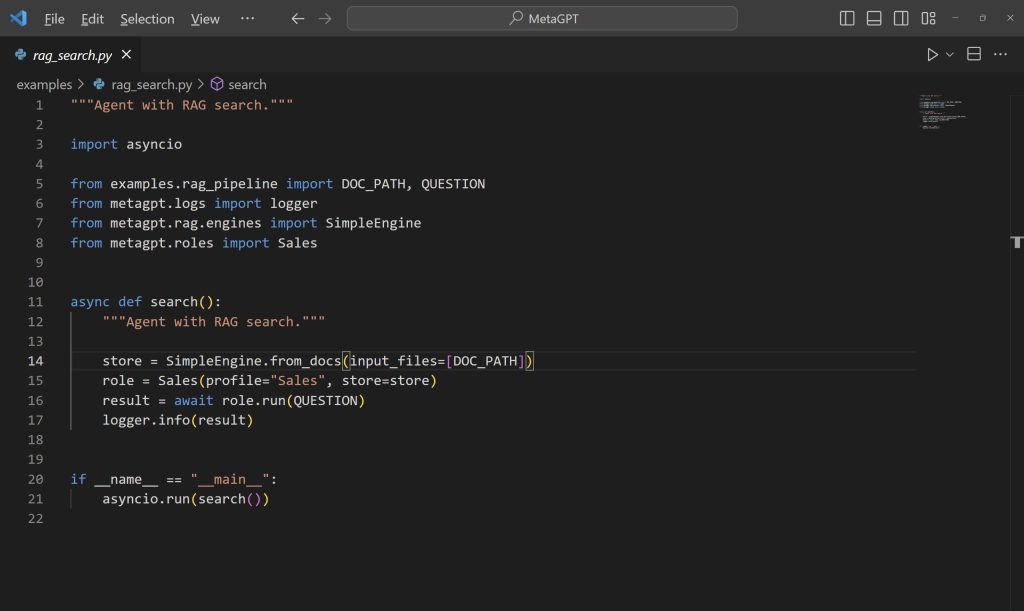In today’s fast-paced world, software companies must efficiently handle complex tasks. However, traditional methods often fail to provide comprehensive solutions to intricate requirements, leading to delays, errors, and inefficiencies in project management, development, and documentation processes.
Various solutions have been devised to address these challenges. However, these approaches may lack flexibility and fail to adapt to the diverse needs of different projects. Others rely on specialized software tools or platforms, which can be expensive, complex to implement, and may not integrate seamlessly with existing systems.
Meet MetaGPT: The Multi-Agent Framework. This innovative solution changes how software companies handle complex tasks by harnessing the power of multiple GPTs (Generative Pre-trained Transformers). MetaGPT assigns different roles to GPTs, creating a collaborative entity capable of performing various functions such as generating user stories, conducting competitive analysis, defining requirements, designing data structures, and documenting APIs.
One of the key components of MetaGPT is the RAG Module, which stands for Retrieve, Aggregate, and Generate. This module significantly boosts the capacity of GPTs to produce responses by leveraging external, authoritative knowledge bases. It offers data input support for diverse file formats and Python objects, retrieval functionality compatible with various methods including Faiss, BM25, ChromaDB, and Elasticsearch, post-retrieval processing options for reranking retrieved content, data updating capabilities, and efficient data storage and recovery mechanisms.
The effectiveness of the MetaGPT RAG Module is demonstrated through its improved relevance and precision of output, enhanced accuracy in retrieving and processing domain-specific knowledge, reduced reliance on manual intervention, and, most importantly, increased productivity of software development teams. By tapping into domain-specific knowledge without retraining, MetaGPT empowers software companies to deliver higher-quality outcomes in less time and with fewer resources, fostering a more productive and efficient work environment.
In conclusion, MetaGPT: The Multi-Agent Framework with its RAG Module offers a groundbreaking solution to the challenges faced by software companies in handling complex tasks. By leveraging the collective intelligence of multiple GPTs and integrating seamlessly with existing workflows, MetaGPT enables teams to achieve greater efficiency, accuracy, and productivity in their project management, development, and documentation processes.
The post MetaGPT and MetaGPT RAG Module (with Sturdy Design of the Llama-Index) appeared first on MarkTechPost.
Source: Read MoreÂ

